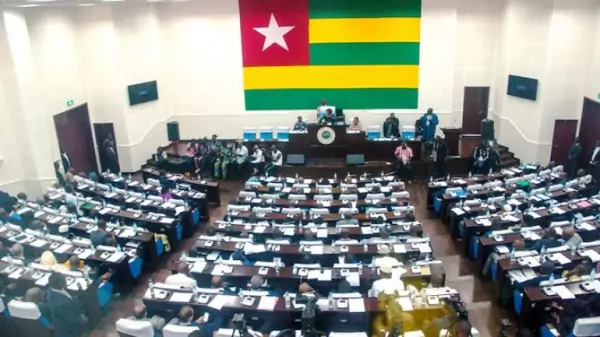Togo’s President Faure Gnassingbe has endorsed a new constitution, abolishing presidential elections, a move contested by opponents, foreseeing an extension of his family’s six-decade reign. Civil society groups call for protests.
Under the new constitution, the president will be chosen by Parliament. This decision follows the ruling party’s parliamentary majority victory, declared by the election commission.
Leading up to the vote, there was a clampdown on civic and media freedoms, including bans on protests and arrests of opposition figures. Election observation by the Catholic Church was prohibited, and foreign journalists’ accreditation was suspended.

Additionally, the new constitution extends presidential terms to six years with a single-term limit. However, this does not apply to Gnassingbe, who has been in power for nearly 20 years. Critics fear he will retain power beyond his 2025 mandate expiration.
Togo has been under the Gnassingbe family’s rule for 57 years, first by Eyadema Gnassingbe and then by his son Faure. Faure Gnassingbe assumed office after elections contested by the opposition.
The ruling party’s parliamentary majority further solidifies the dynasty’s hold on power.
Ahead of the election, there were reports of media and opposition crackdowns by Togo’s authorities.
Moreover, the new constitution introduces a prime minister-like figure to be appointed by the ruling party, raising concerns of further entrenchment of power by Gnassingbe.


